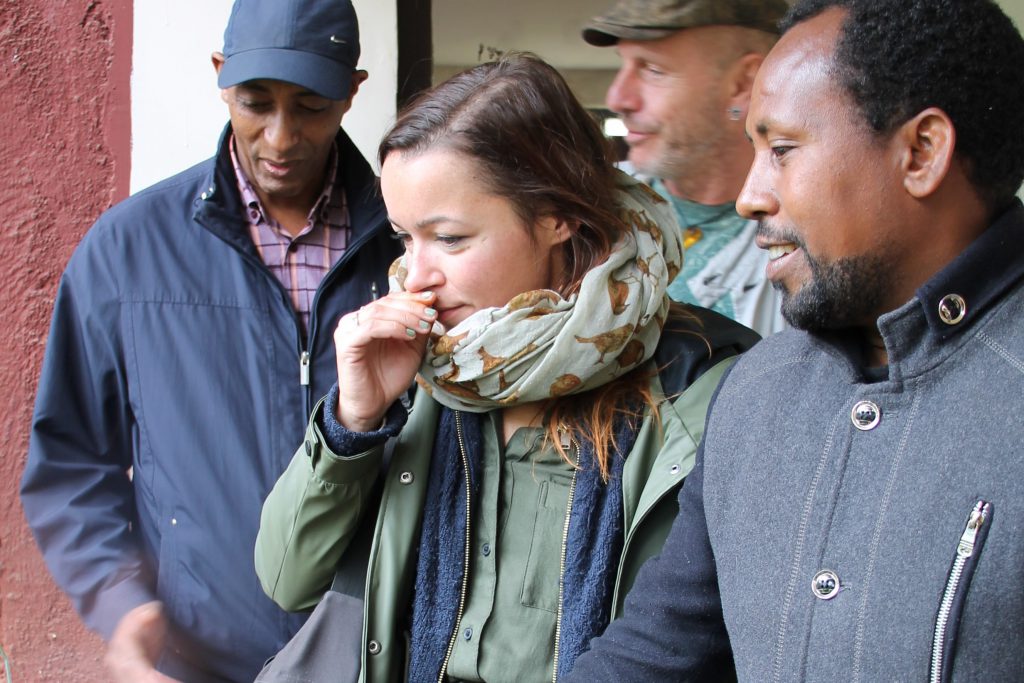1. Inclusive school garden

Inclusive school garden project in the twin cities of Leipzig and Addis Ababa
The right to holistic, inclusive education, regardless of disability, ethnic, cultural or social affiliation, as well as other excluding, normative labels, needs to be implemented since 2008, when the UN Convention on the Rights of Persons with Disabilities came into force. This task often confronts schools and teachers with challenges that appear insurmountable. Thus, inclusive, joint learning is often given oversized thoughts and low-threshold offers, which are based on the individual resources of the pupils, are rarely implemented.
The inclusive school garden project of the partner schools – the German Church School in Addis Ababa and the ‘Berufsschulzentrum 12’ (BSZ – Vocational Training Centre) in Leipzig – is intended to show that inclusion is not just an idealistic idea. Children and young people with and without disabilities work together on a barrier-free garden and learn in a playful way about handicrafts, biology, maths, and social studies. This project also leads to raising awareness for people with disabilities, to cross-cultural interaction, and, not least, to experiencing self-efficacy.
On completion of the project at the end of 2019, the already barrier-free schoolyards will each be decorated with two planters built by the pupils themselves. Both the German Church School and the BSZ 12 will each receive a planter with Ethiopian and another one with German herbs. The plant containers will be about one meter high giving unobstructed access to people with physical impairments or wheelchair users. In addition, aromatic and tasty herbs from both countries will be used allowing also visually impaired people to experience them with their sense of smell, taste and touch. Last but not least, the labelling of the containers and plants in German, Amharic and Braille will promote cultural understanding and barrier-free communication.
This inclusive school garden is part of the ‘Partnership Projects for Sustainable Local Development (Nakopa) programme’ and a model project. In collaboration with the Leipzig Botanical Garden and the Addis Ababa Botanical Garden, plants will be selected that are climatically adapted. The project is implemented under the guidance of the inclusion pedagogue of the BSZ 12, Sarah Junge; the department head of the BSZ 12, Frank Böhme; and the social worker of the German Church School, Merdassa Kassaye.
It is the aim of the project to organize a student exchange with three or four students going to Addis Ababa and to Leipzig. With the help of the teachers involved, the local social worker and the inclusion pedagogue, the planters will be built, arranged, cultivated, and labelled.